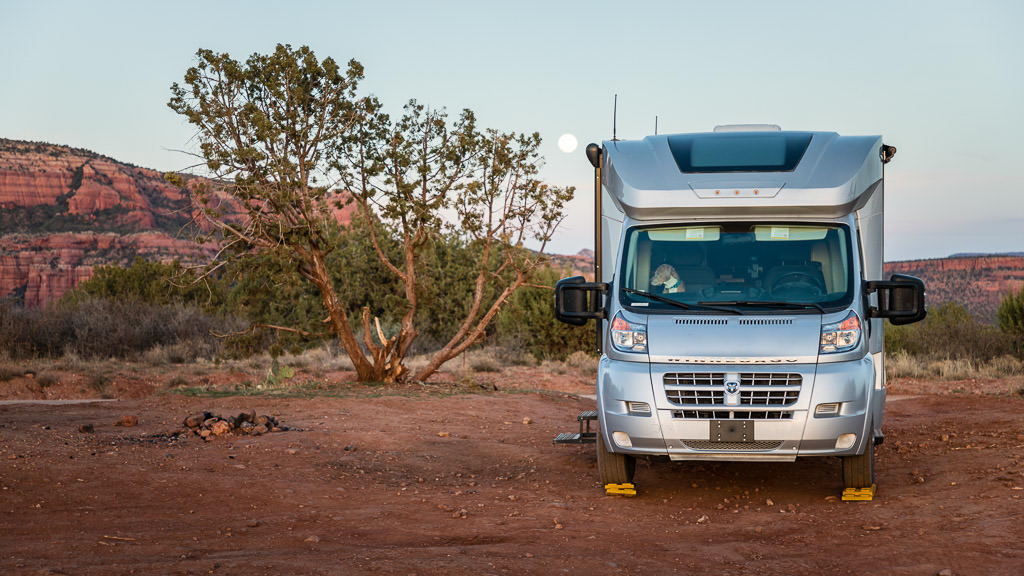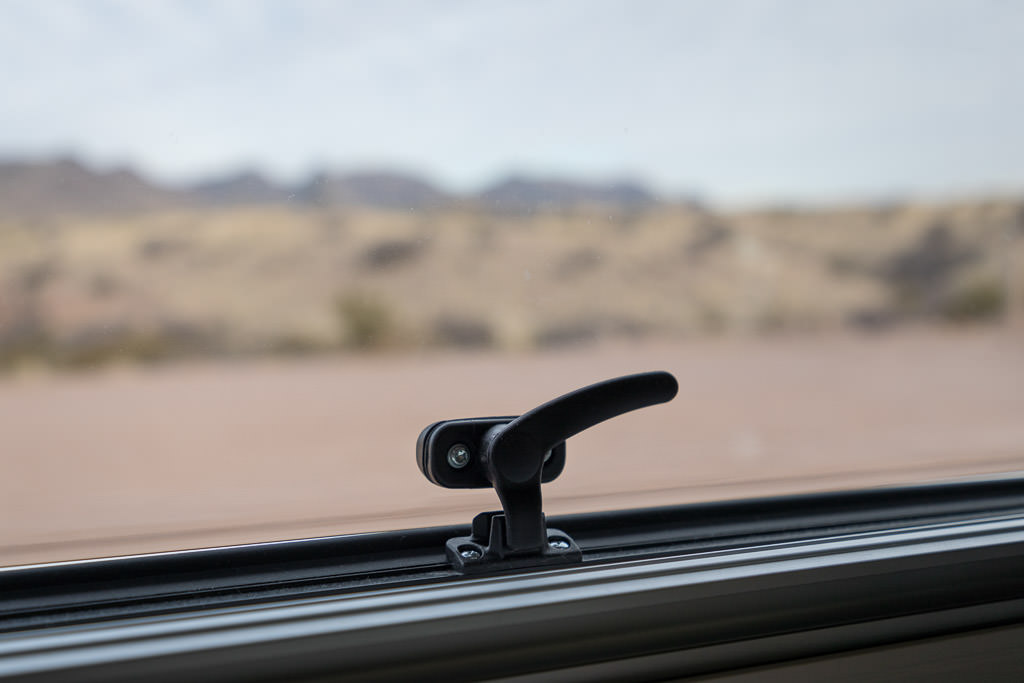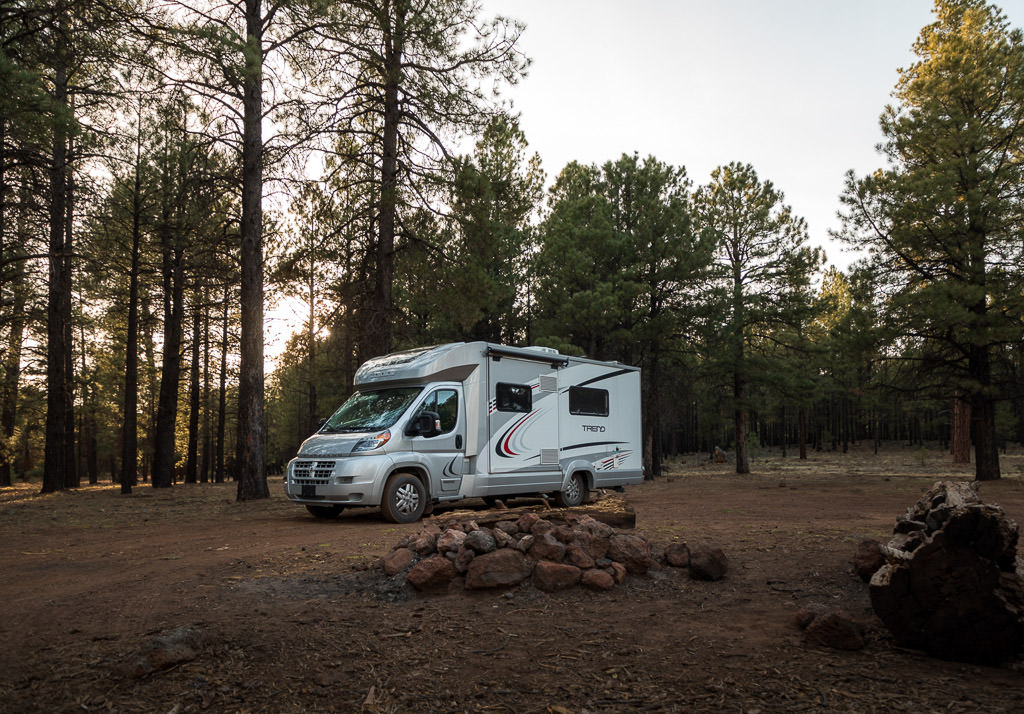
9 Ways to Reduce RV Condensation
Winter is coming. Okay, okay, maybe not quite yet, but summer is coming to an end and temperatures will be cooling down in many parts of the country. RV condensation is a fact of RV travel, which is at its worst in cold temperatures.
Condensation results when water vapor cools and becomes liquid. Just breathing in your RV creates water vapor! Cooking, showering, and your camping location can also significantly increase water vapor in the air. Although these things can produce RV condensation any time of year, they're most impactful as the temperature drops.
But, fall is a gorgeous time of year to RV, so if you're not ready to store your RV just yet, we have nine tips, including both products and behaviors, to help you reduce condensation in your RV.

Products that Reduce RV Condensation
1. Moisture Absorber
A moisture absorber is a good start toward fighting mold-causing condensation. This is a great start because it's most effective in warmer weather. If you're spending the end of your summer anywhere in the Southeast, a moisture absorber is a must. If you're heading in that direction, it's still a good idea to grab one as fall can arrive as late as November depending on where you're staying.
A moisture absorber is pretty much a bucket of crystals that behaves like a dehumidifier without the need for electricity. The crystals absorb excess moisture from the air, returning the humidity level to a more optimal level. Jon and I began RVing in the Southeast in a travel trailer. The DampRid brand is our favorite moisture absorber.
2. Dehumidifier
As the weather becomes colder, you'll definitely want to add a dehumidifier to your condensation fighting toolkit. Most dehumidifiers require power, but Eva Dry, which is mine and Jon's favorite brand, make a 12-volt version (the EDV 2500) that can work out better for boondocking.
In our small Class C Winnebago Trend, we use a small Eva Dry Dehumidifier (the EDV 1100, but we constantly travel and don't rely solely on it). If you're stationary for long periods of time, have a large RV, or are often connected to shore power, you may wish to upgrade to a larger dehumidifier. As a rule of thumb, 15 pint/7 liter dehumidifiers are effective for many RVs, and 25-30 pint/14 liter dehumidifiers could work best for large RVs.
Carefully look through reviews for real-world comments regarding weight, power consumption, and noise. Desiccant and compressor dehumidifiers are the two main types. As another rule of thumb, desiccant dehumidifiers are quieter, lighter, and perform better at lower temperatures, but a compressor dehumidifier could remove moisture faster and possibly consume less power. It really all varies by unit, and manufacturers don't all rate capabilities at the same humidity levels, so it will be hard to make direct comparisons. Mostly, beware of advice that points you toward a dehumidifier that's best for an average sized house -- you don't need that for your RV.
3. Dual-Pane Acrylic Windows
We've raved about our Dual Pane Acrylic windows before. We bought our Trend with this upgrade and can't imagine RVing without it. RV condensation is a problem to begin with because RVs are not insulated in the same way that a home is. Traditional RV windows are a major weak point when it comes to insulation.
We've personally found dual pane acrylic windows help immensely with insulation. As a result, we haven't had to wake up early to race around the RV, wiping dry all of our windows in a blaze of blue shop-towel glory. (We may have done this on a few occasions in our pre-acrylic-windows RV life).
This isn't to say that dual pane acrylic windows eliminate RV condensation, but we've personally seen a reduction. We also found that we used the furnace less since the RV stays warmer. RV furnaces are often propane powered, and propane appliances do create water vapor.

Behaviors that Reduce RV Condensation
Besides buying products there are free, or nearly free, things that can be done to reduce RV Condensation.
4. Opening a window or vent
Again, beginning with what you can do while it's still warmer: open a window. Opening a window or vent can go a long way toward reducing RV condensation. Unfortunately, although this is true, it won't work once it becomes too cold. Letting too much cold air in will make it too cold inside the RV, which in turn will mean you'll turn on your propane furnace, which will only create more water vapor. Not to mention, you probably don't want to spend all of your money on propane refills.
5. Open closets and cabinets
When we were new RVers, we were horrified to discover moisture inside one of our closets when reaching in for a shirt. Upon further investigation, we found these sweaty walls inside of other closets and cabinets. Condensation on windows is an easy fix because you can see it. Hidden sweaty walls are out of sight and could therefore be out of mind. Get some air flowing into these areas by cracking open your closet and cabinet doors. Or place a moisture absorber or dehumidifier, near other areas where condensation could build up on account of low air circulation (like the wall behind your couch).
6. Cooking outside when possible
If you can, cook outside. This will help immensely in your fight against condensation. Cooking is one of the main causes of water vapor in your RV. If cooking outside is not an option, by all means cook inside, but then try your best to avoid boiling. Try sauteing your veggies rather than steaming or boiling them for example. If you must boil, be sure to use a lid.

7. Campground showers
Jon and I do love campground showers and using other public shower facilities (gyms) and we understand that not everyone does. However, when RV condensation is at its worst during the colder months, they are a great way to help reduce condensation in your RV. Showers, especially the longer ones you might take if you are hooked up to city water, are a major contributor to RV condensation.
8. Don't stay long in the Southeast
Humidity is often high in the Southeast, no matter what season it is. Jon and I were born and raised in said humidity and we highly recommend avoiding long stints in the Southeast with your RV. Humidity levels in your RV are going to be higher anytime you are in the Southeast (certain parts of the Midwest also).
A great benefit to RV travel is the flexibility to follow the weather. High humidity climates are not ideal for your RV. That being said, we do love the Blue Ridge Mountain area of the Southeast in North Carolina, Tennessee, and Georgia. Try visiting in late summer/early fall with your moisture absorber, dehumidifier, outdoor cooking, and campground shower strategies in place.
9. Fall in love with the Southwest
A sure way to reduce condensation is to go where there is no humidity. Jon and I fell in love with the desert and red rock of the Southwest. If it works with your travel route, try watching the Aspens change color in Colorado and work your way down to Utah, New Mexico, and Arizona during the later parts of the fall.
Consider wintering in the Tucson area. A little love for the Southwest can have you back to just being mindful of cracking windows and vents when you cook and shower, keeping condensation in the back of your mind and your focus back on the joy of your RV travels.
RV condensation can be a bit of a nuisance, but luckily there are many ways to reduce condensation. The combination of methods that work best for your preferences, and your particular rig, may differ from someone else's, but with the right combination we can all enjoy a little fall and winter RVing.
Comments
Comments on this post are moderated, so they will not appear instantly. All relevant questions and helpful notes are welcome! If you have a service inquiry or question related to your RV, please reach out to the customer care team directly using the phone numbers or contact form on this page .